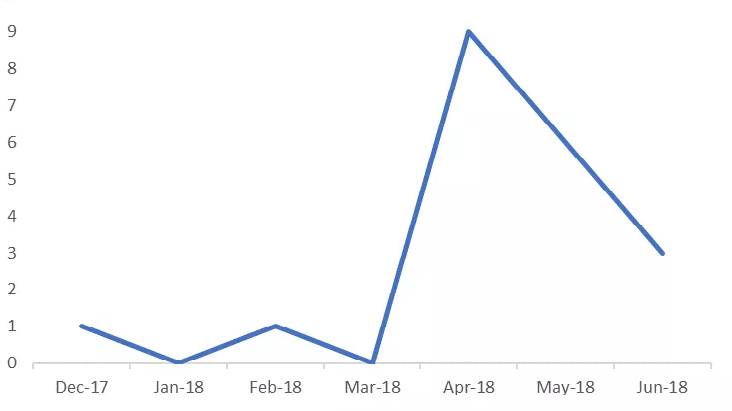Millions of Xiongmai video surveillance devices can be easily hacked via cloud feature, a gift for APT groups and cyber crime syndicates
Security experts from security firm SEC Consult have identified over 100 companies that buy and re-brand video surveillance equipment (surveillance cameras, digital video recorders (DVRs), and network video recorders (NVRs)) manufactured by the Chinese firm Hangzhou Xiongmai Technology Co., Ltd.(Xiongmai hereinafter) that are open to hack.
Millions of devices are affected by security vulnerabilities that can be easily exploited by a remote attacker to take over devices. The flaws could be exploited to spy on camera feeds of unaware users.
The flaws reside in a feature named the “XMEye P2P Cloud” that is enabled by default which is used to connect surveillance devices to the cloud infrastructure.
“From a usability perspective, this makes it easier for users to interact with the device, since the user does not have to be in the same network (e.g. the same Wi-Fi network) in order to connect to the device. Additionally, no firewall rules, port forwarding rules, or DDNS setup are required on the router, which makes this option convenient also for non-tech-savvy users.” reads the report published by SEC Consult.!However, this approach has several security implications:
- The cloud server provider gets all the data (e.g. video streams that are viewed). Open questions:
- Who runs these servers?
- Who controls these servers? Where are they located?
- Do they comply with local jurisdiction?
- Does the service comply with EU GDPR?
- If the data connection is not properly encrypted (spoiler alert: it’s not, we’ve checked!), anyone who can intercept the connection is able to monitor all data that is exchanged.
- The “P2P Cloud” feature bypasses firewalls and effectively allows remote connections into private networks. Now, attackers cannot only attack devices that have been intentionally/unintentionally exposed to the web (classic “Shodan hacking” or the Mirai approach), but a large number of devices that are exposed via the “P2P Cloud”.”
Each device has a unique ID, called cloud ID or UID (i.e. 68ab8124db83c8db) that allows users to connect to a specific device through one of the supported apps.
Unfortunately, the cloud ID is not sufficiently random and complex to make guessing correct cloud IDs hard because the analysis of the Xiongmai firmware revealed it is derived from the device’s MAC address.
According to SEC Consult experts, an attacker can guess account IDs and access the feed associated with other IDs,
Experts found many other security issues, for example, all new XMEye accounts use a default admin username of “admin” with no password and the worst aspect is that the installation process doesn’t require users to change it.
The experts also discovered an undocumented user with the name “default” and password “tluafed.”
“In addition to the admin user, by default there is an undocumented user with the name “default”. The password of this user is “tluafed” (default in reverse).” continues the analysis.
“We have verified that this user can be used to log in to a device via the XMEye cloud (checked via custom client using the Xiongmai NetSDK). This user seems to at least have permissions to access/view video streams.”
Experts also discovered that it is possible to execute arbitrary code on the device through a firmware update.
Firmware updates are not signed, this means that an attacker carries out a MITM attack and impersonate the XMEye cloud to tainted firmware version.
Xiongmai devices were involved in IoT botnets in the last months, both Mirai and Satori bots infected a huge number of devices manufactured by the Chinese firm.
“We have worked together with ICS-CERT to address this issue since March 2018. ICS-CERT made great efforts to get in touch with Xiongmai and the Chinese CNCERT/CC and inform them about the issues. Although Xiongmai had seven months’ notice, they have not fixed any of the issues.”
“The conversation with them over the past months has shown that security is just not a priority to them at all.” concludes SEC Consult.
To read the original article:https://securityaffairs.co/wordpress/76990/breaking-news/xiongmai-iot-devices-hack.html

